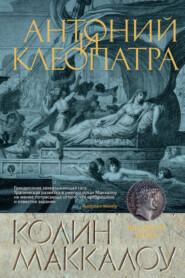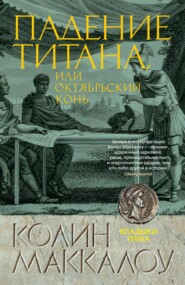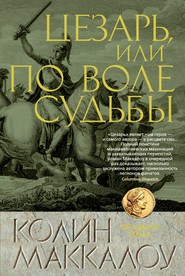По всем вопросам обращайтесь на: info@litportal.ru
(©) 2003-2024.
✖
Naked Cruelty
Автор
Год написания книги
2018
Настройки чтения
Размер шрифта
Высота строк
Поля
“Actually it’s up his alley, if he sticks to procedure. My chief worry is, what’s he not writing down?”
Carmine took time that Friday to drive around Carew, look at houses belonging to rape victims and Gentleman Walkers. Why did Nick have to conceive such a hot dislike of Helen? He couldn’t pass up an opportunity to needle her.
Helen had been right when she called Kurt von Fahlendorf’s house the prettiest in the district. It was a pre-Revolutionary saltbox with a pillared porch set in an acre of beautifully gardened grounds; a look around the back revealed a breezeway connecting the main structure to what, in the old days, would have been a kitchen annex. Now it was probably a guest house; someone whose family resided in West Germany would need adequate guest accommodation. The guy definitely had money, Carmine decided, between the address and the wages he must pay his gardener.
Mason Novak, the inorganic chemist whom Mark Sugarman had called the spirit of the Gentleman Walkers, lived in a small cottage on Curzon Close just two doors down from Kurt von Fahlendorf. A man named Dave Feinman lived in a neat little cottage on Spruce Street just around the corner from Curzon Close. He was a widower and was listed as a retired freelance statistician who still took an occasional commission.
No Walker seemed impoverished, and hardly any were married or lived with a woman. Probably because wives were not likely to want their husbands off patrolling for the benefit of other women when they had a woman at home. Privately Carmine thought that the reason for 146 unattached men in Carew lay in its hordes of young women. Carew was rich pickings for one kind of man in particular: a gentleman. And what else were the Gentleman Walkers?
Arnold Hedberg, a professor of history at East Holloman State College, lived his on-the-verge-of-forty existence in the bottom third of a three-family house on Oak Lane that he owned outright, no mortgages. Mike Donahue, a plumber with a thriving business, was young enough at thirty-one to live in a block of apartments he too owned, though he had a mortgage. He had plenty of women tenants under his own roof, but none had been targeted by the Dodo. Gregory Pendleton was a forty-five-year-old assistant district attorney; he occupied the top floor of a six-storey apartment block on State Street that he owned outright. Bill Mitski was another who lived in a private house he owned; he had an accounting business that specialized in taxation. And more, and more … Few Gentleman Walkers were genuine bachelors. Most seemed to be men who had suffered so badly in the divorce court that they were once bitten, twice shy. Sugarman, Mitski, Novak and von Fahlendorf described themselves as “single”— which didn’t say that they weren’t towing more wives than Bluebeard. If his divorce was through, a man was legally single.
After due consideration Carmine decided that his entire team, including Helen, should accompany him to the Gentleman Walkers’ meeting at six o’clock on the seventh floor of the Susskind Science Tower on Chubb’s Science Hill campus. This was Henry Blackburn’s brain child, and a good one. The President of Chubb just after the Second World War, Blackburn had sequestered 29 acres of Chubb land on Cedar to the east of the Green, and given it to the Chubb School of Architecture to turn into a science campus. Both the Burke Biology Tower and the Susskind Science Tower hadn’t gone up until 1960, but there were plenty of smaller buildings dotted around, as well as the great truncated, grassy pyramid that was the physics bunker, where all work went on way underground in cooled and filtered air. This grassiness was a perpetual frustration as far as the Committee for Nuclear Disarmament was concerned; they had nowhere to paint their CND symbols, so had to content themselves by parading with placards that said BAN THE BOMB.
Having heard the widely disseminated news of Maggie Drummond’s rape, all the Gentleman Walkers came to a venue Carmine thought ideal for an observer down on the podium, as every face was visible in the curved tiers of seats.
Delia and Helen sat on the podium flanking Mark Sugarman on one side, with Carmine and Nick on his other side. The Walkers stared hard at them, but hardest at Helen, whom most of them seemed to know. Probably, thought Delia, we don’t look much like cops, between two women and a black man.
Mark Sugarman began. “I’m sure you know that Maggie Drummond has been raped, but what you won’t know is that six other girls have come forward—I won’t name names, but some of you will make educated guesses. You’re here tonight to meet the police in charge of the case, answer their questions, and ask questions.”
He introduced Carmine and his team, while Carmine’s eyes continued to rove across the assembled ranks. Easy to decide who was Mason Novak and who Kurt von Fahlendorf; they sat together in the front row, together with a very elderly fellow of the kind Carmine always called a “Dapper Dan”—a bit like the 1930s movie star, William Powell, even including the little mustache.
Kurt von Fahlendorf was a looker in any language. Six feet tall, a good physique, and the kind of Nordic good looks a fan of Teutonic myth might associate with Siegfried. His crew-cut hair was so fair that it glittered as if made of frost—no fan of the fashionable Beatles-length hair here! His eyes were the same shade of ice-blue as Desdemona’s, and his facial features sharply defined, including high cheekbones that made it easy to mentally put a Wehrmacht general’s cap on his head. Odd, that he didn’t look Gestapo. Maybe that’s because I heard Helen on Prussian junkers? To Carmine he seemed cold in a scientific way; the eyes were extremely intelligent, but not involved as were the eyes of Mason Novak next to him. This was a passionate man, about the same height and physique as von Fahlendorf, but coppery in coloring and owning a face most women would probably prefer to the Prussian’s; despite his facial irregularities, Mason was powerfully attractive. The heart and soul of the Gentleman Walkers? Yes, he looked all of that. The way he and Kurt sat said that they were very good friends who trusted each other, which said a lot about both men. Probably not the Dodo.
Mark then asked each Walker to rise and give his name; after driving around Carew and looking at records, this was a bonus Carmine hadn’t expected. He had imagined that he would be obliged to demand identification, which would have put the meeting on a different, more antagonistic footing. Sugarman was a good guy. Feinman was a youthful sixty-eight, fit and appealing; he probably had no trouble pulling women. Arnold Hedberg looked studious, Mike Donahue looked as if he went rock climbing for pleasure, Gregory Pendleton was darkly handsome, Bill Mitski a “gold” man—hair, eyes, skin.
What all shared was remarkable physical fitness, and none was small in stature, maybe because small men would have found it hard to stay in stride with long-legged men: a man’s height was in his legs, not his trunk.
“Our patrols are convivial because we always walk with the same companions,” said Dapper Dave.
“Do you roster everybody?” Delia asked.
“Yes, for every second night, come hell or rainstorms,” Sugarman answered. “We field twenty-four trios, with two men in reserve. As Dave says, always the same three men in a trio. They sorted themselves out amicably during the first six weeks, and haven’t changed since. So on any one night, we saturate the district. That’s why we don’t understand how we’ve missed him.”
“You walk at the wrong hour, Mr. Sugarman,” Nick said. “He starts earlier than you do, so by the time you’re on the streets, he’s already inside his premises of choice.”
“Yes, but he has to come out!”
“If he were a run-of-the-mill rapist, sir, you’re right, he would be leaving while you’re patrolling. Unfortunately he makes a night of it,” Nick said. “Instead of attacking and leaving at once, he remains—and rapes multiple times—for about five hours. So he’s in before you start, and not out until way after you’ve all gone home.”
“We’re useless!” Mason Novak cried, voice breaking.
“No, sir, you’re not,” Carmine said in a strong, positive voice. “Look at what you know you’ve done! While you’re on the streets patrolling, the women of Carew know they can walk safely. You’ve apprehended three potential rapists. And as long as you enjoy the exercise, keep on going. Your activities may not affect the Dodo, but they do make Carew safer nonetheless.”
That made them feel better; they began to sit up straighter, murmur among themselves.
“You’ve saturated the district between six and seven-thirty,” Delia said, “which is particularly important now that the days are drawing in. Do women ever approach you to walk with them?”
“The last couple of days, yes,” Gregory Pendleton said.
“That’s a trend will increase,” Carmine said. “Believe me, the women of Carew are grateful for the Gentleman Walkers.”
“Is there anything we can do to improve our technique?” Mark Sugarman asked.
“You could split into two shifts, the second one from seven-thirty until nine, but it’s not going to affect the Dodo.”
“Is that his police tag?” Bill Mitski asked. “It’s what he calls himself. Didus ineptus. The old Latin name for the Dodo. We’re using the English form, Dodo.”
Mason Novak scowled, displeased. “The media will love it.”
“True, and that carries some advantages, Mr. Novak. We’ll get publicity when we need it because the name is catchy. That may be why the Dodo picked it.”
“He’ll get publicity too,” said Arnold Hedberg.
“If by that you’re assuming the Dodo is a publicity hound, sir, you’re wrong,” Carmine said, fighting to remember his name. “The Dodo has been plying his craft in absolute secrecy for nearly seven months, which I think says loud and clear that he doesn’t want publicity. Maggie Drummond was a mistake, Professor Hedberg, but he had no way of knowing how brave she is. He couldn’t frighten her into silence. Now the police are aware of his activities, and his earlier victims have found the courage to speak up. Life is getting harder for the Dodo.”
“Should we disband?” Mason Novak asked, despondent now.
Carmine looked surprised. “Now why would any cop want to disband a gentlemen’s walking club? Haven’t I already indicated what a good job the Gentleman Walkers are doing? Let’s hear no more about disbanding, please.” He’s mercurial, Carmine was thinking as he spoke the soothing words; Mason Novak isn’t quite stable, but luckily Sugarman knows it, and can handle him.
He spoke aloud again, but in a different voice: this one was stern, minatory, expressive. “I want all of you to remember one thing, sirs. The Dodo is not a peeping Tom, an underwear thief, or a simple stalker. He’s the big cat of sexual predators—cunning, awake on all counts, innovative, and silent. There’s a great deal more to him than meets the eye. The person his colleagues, friends and acquaintances know is usually impossible to associate with rape, torture and murder. I don’t mean that you ought to look at everyone you know differently, I mean that sooner or later this extinct bird will crash because of a small mistake. If you think you’ve found a contradiction in someone that plain doesn’t make sense, tell us.”
“When may we see Maggie?” Arnold Hedberg asked.
“Not for a while, sir. We’re taking her into protective custody. We don’t think she’s in any real danger,” said Delia, who looked like a barber’s pole tonight—diagonal red and white stripes, “more that there’s no virtue in taking chances.”
“The Chubb Medical School has one of the world’s top rape psychiatrists in Dr. Liz Meyers,” Carmine said as the meeting broke up some time later, “and she’ll be running a special clinic for the Dodo’s victims.”
Kurt waited for Helen to come down from the podium.
“I didn’t expect to see you,” he said, ranging himself alongside her as the crowd moved toward the door.
“Since I’m a detective in the Captain’s own team, why wouldn’t I be here?” she asked in a discouraging tone. Now was not the moment for Kurt to assert ownership—in front of all these men, yet! Still, he was a pussycat, no argument there; his manners were impeccable, his kindness something he didn’t need to prove to her after eight months of dating, and his genius was allied with a very rare quality: Kurt could get down to a layman’s level effortlessly. What she found harder to admit to herself was that she loved Kurt’s respect for her. Thus far she hadn’t invited him into her bed, and he genuinely liked that. Why? Because he was looking for a wife, not a mistress; every date that ended in a few delicious kisses and strokes without going farther pleased both of them. He thought she was virtuous. She thought his search for a virtuous bride extremely convenient. Fighting off amorous boyfriends was not Helen’s favorite pastime.
“You shouldn’t associate yourself with this investigation,” he said in a scolding voice. “This Dodo might see you.”
“Oh, Kurt, honestly! I live in a security apartment, not the top floor of a two-family house,” she said, exasperated. “I’m a cop! A professional cop who graduated at the head of the NYPD academy, what’s more. The Dodo’s not that stupid. Like all predators, he goes after prey he knows he can handle. I swear on your starched-up Lutheran God that he couldn’t handle me.”
“Do not take the name of God in vain!” he said, horrified.
“Bah, humbug !” she said, laughing at his seriousness.
Just behind them, Carmine and Nick walked with Mason Novak, and behind them were Bill Mitski, Mark Sugarman and Greg Pendleton.
“You were Shirley Constable’s friend, right?” Nick asked Mason Novak.
“Yes.”
“Have a talk to Delia Carstairs in about five days’ time. She’ll be able to advise you by then.”














